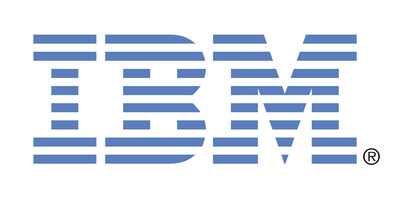PHP 8.4 has been officially released as of November, marking a significant update for developers who rely on this popular server-side scripting language. This latest version brings with it a host of new features, changes, and deprecations that developers need to familiarize themselves with. One of the notable changes in PHP 8.4 is the modification in handling non-POST HTTP verbs, which is the focus of this discussion.
Understanding HTTP Verbs in PHP: A Historical Perspective
Since its inception, PHP has been intricately tied to web development and the handling of web forms. Initially, web browsers primarily interacted with web pages through two HTTP methods: GET and POST. These methods allowed the transfer of data between a client (such as a web browser) and a server. While HTML forms still predominantly rely on these two methods, the landscape of web development has evolved. JavaScript, for instance, can send HTTP requests using a variety of methods beyond GET and POST. Tools like HTMX have further simplified this process, enabling developers to seamlessly work with multiple HTTP methods.
The Role of GET and POST Methods
The GET method allows for data to be passed via the URL’s query string, making it possible to bookmark, repeat, and cache the results. This method is typically used for actions that do not alter the state of the application, such as searching, filtering results, or pagination. Conversely, the POST method is used for actions that may change the application’s state, such as submitting a form, uploading a file, or processing a transaction. POST requests are non-idempotent, meaning they cannot be cached or repeated without potential side effects, such as duplicate entries in a database.
PHP simplifies the process of handling form data by providing superglobal variables like $_GET and $_POST. These variables are automatically populated with data from incoming requests, making it easier for developers to access and manipulate the data. For instance, $_POST is populated from the body of POST requests, typically using the content type application/x-www-form-urlencoded.
Moreover, PHP can handle multipart/form-data, enabling file uploads alongside form data. This is achieved through the $_FILES superglobal, which provides information about the uploaded files, allowing developers to validate and store them appropriately.
Exploring Other HTTP Methods
Beyond GET and POST, other HTTP methods such as PUT, PATCH, and DELETE offer additional functionality. These methods provide context for the intended actions:
- PUT is used to replace existing data.
- PATCH is employed for partial updates to existing records.
- DELETE indicates that the submitted content should be removed.
While these methods are not natively supported by browsers, many JavaScript frameworks and libraries facilitate their use.
Innovations in PHP 8.4: Handling Non-POST HTTP Verbs
PHP 8.4 introduces a new function called
request_parse_body(), designed to streamline the handling of non-POST HTTP requests. This function parses incoming requests in a manner similar to how POST requests are traditionally handled, offering a unified approach to managing different HTTP methods.Here’s a typical usage pattern for this function:
php<br /> if (in_array($_SERVER['REQUEST_METHOD'], ['PUT', 'PATCH', 'DELETE'], true)) {<br /> [$_POST, $_FILES] = request_parse_body();<br /> }<br />This simple function provides developers with a familiar and efficient way to process requests using non-POST verbs. It eliminates the need for custom parsers, which can be error-prone and security-sensitive.
A Developer’s Guide to HTTP Verbs in PHP 8.4
With the introduction of
request_parse_body(), developers now have a powerful tool at their disposal for handling HTTP requests. This function supports the following content types: application/x-www-form-urlencodedmultipart/form-dataIf a request with an unsupported content type is encountered, the function throws an
InvalidArgumentException. This ensures that developers are alerted to potential issues early in the request handling process.Utilizing php://input
PHP provides access to the raw request content through the
php://inputstream, which can be read multiple times. However, when dealing withmultipart/form-data, PHP’s handling is more complex to avoid excessive memory and storage usage. As a result, developers should avoid callingrequest_parse_body()more than once, as it consumes thephp://inputstream destructively.Customizing Behavior with the $options Parameter
The
request_parse_body()function includes an$optionsparameter, allowing developers to customize its behavior dynamically. This flexibility can be particularly useful in scenarios where different request sizes or complexities are anticipated. Options include:- post_max_size: Defines the maximum content size for parsing.
- max_input_vars: Limits the number of form variables to parse.
- upload_max_filesize: Restricts the size of individual files.
- max_file_uploads: Limits the number of file uploads.
- max_multipart_body_parts: Controls the combination of file uploads and form data variables.
These options enable a high degree of control over request handling, allowing developers to fine-tune their applications’ performance and security.
Conclusion
The enhancements in PHP 8.4, particularly the handling of non-POST HTTP verbs, represent a significant step forward for developers. By simplifying the process of parsing diverse HTTP requests, this update not only improves developer productivity but also enhances application security by reducing the need for custom parsers.
Looking ahead, the hope is that browsers will eventually support a wider range of HTTP verbs natively, further streamlining web development workflows.
As you consider upgrading to PHP 8.4, it’s worth exploring the additional features and improvements it offers. For those seeking assistance with the upgrade process, resources such as Zend’s Long Term Support and professional services can provide valuable guidance.
For more information on PHP 8.4 and related topics, you can visit the original website.
For more Information, Refer to this article.

































